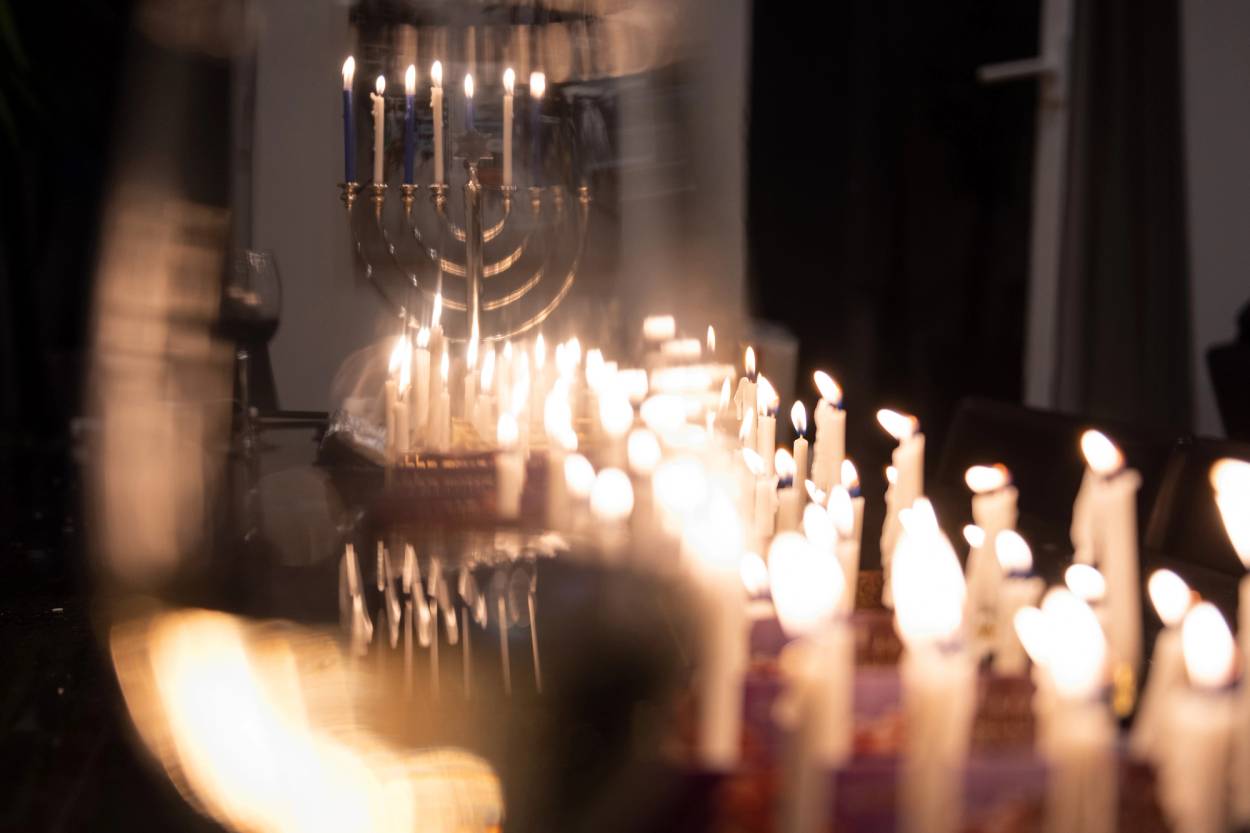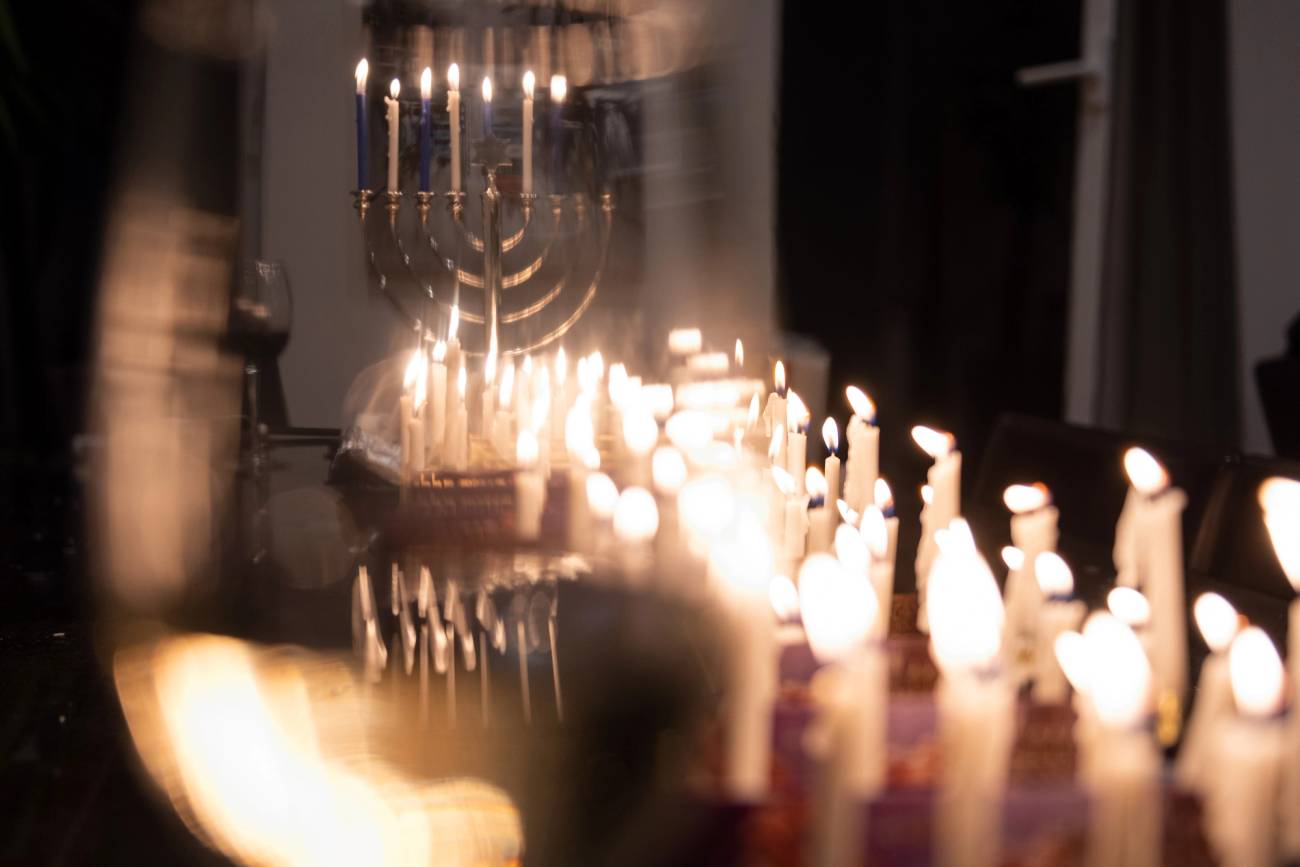Do you know what the phrase “Hanukkah antisemitism” means?
It’s a sharp insight from our friend and colleague Dara Horn.
“Two distinct patterns of antisemitism can be identified by the Jewish holidays that celebrate triumphs over them: Purim and Hanukkah,” she wrote in her bestselling book, People Love Dead Jews. “In the Purim version of antisemitism, exemplified by the Persian genocidal decrees in the biblical Book of Esther, the goal is openly stated and unambiguous: Kill all the Jews.”
“In the Hanukkah version of antisemitism, whose appearances range from the Spanish Inquisition to the Soviet regime, the goal is still to eliminate Jewish civilization,” she continues. “This goal could theoretically be accomplished simply by destroying Jewish civilization, while leaving the warm, de-Jewed bodies of its former practitioners intact....[The regime] isn’t antisemitic but merely requires that its Jews publically flush thousands of years of Jewish civilization down the toilet in exchange for the worthy prize of not being treated like dirt, or not being murdered.”
Over the past decade, an effort at erasure has been happening in America—which many American Jews preferred to ignore or explain away. Since October 7, that no longer seems possible.
Universities where Jews paid for new libraries and classroom buildings—ostensibly for children of all races and creeds to learn how to make the world a better place—are now places where young people are punished for accidentally misgendering someone or singing a rap lyric, but not for calling for the genocide of Jews. Hospitals where every life was said to be sacred turned out to be riddled with doctors and nurses who see no conflict between their chosen profession and calling for Jews to be targeted. Women’s organizations asked us to reflexively believe the victims of rape—except, it turns out, if they are Jewish. Museums and arts organizations, where Jews serve on boards and underwrite seasons of programming, platform pro-Hamas artists and creators who deny the legitimacy of Jewish history and the Jewish state. People and places so quick to issue statements mourning the death of George Floyd and protesting Vladimir Putin’s invasion of Ukraine suddenly decided, when faced with the deaths of Jews at the hands of Hamas, that they “didn’t want to be in the business of issuing public statements on every news event.”
Too many of us have taken the path of least resistance when it comes to giving charity, imagining that our loyalties and habits would be a sufficient guide to doing what’s right in the present. They are not. This is a moment that calls for us to make hard choices. Giving money to people who don’t care whether you live or die, or who actively hate you, isn’t charitable. It’s stupid. How much bravery does it take to withhold a check and risk minor social ostracism, compared to what Jewish kids are enduring on college campuses—not to mention what the people of Israel have been going through?
As 2023 comes to a close, it’s time for American Jews to stop all support for any institution that has shown itself to be at best indifferent to whether we live or die, and at worst have offered themselves up as active incubators for anti-Jewish hate. Jews of all income levels should freeze volunteering and giving to institutions that can’t be bothered to observe basic rules of good fellowship toward Jews.
Before you write a check or sign up to volunteer, do a simple Google search. Did they issue a statement after October 7? What did it say? Does it seem like the people involved see and respect the lives of Jews, and welcome Jews—as Jews—in their spaces? If not, whatever their intentions or the goodness of their other work, they’re contributing to the erasure of Jews and Judaism from American public life. Among the challenges we are facing, not supporting them should be the easiest.
Plus, there are so many organizations and causes that do deserve investments—of our time, our money, our loyalty. Give where your heart takes you. That may be to established entities like Magen David Adom or Chabad, or to smaller groups and efforts, like Sunflowers, the organization dedicated to supporting orphans and their families in Israel—a group whose work is tragically more important than ever. It may also be projects outside of Jewish life, like those that seek to repair, bolster and enrich American society. Just be sure it’s a place truly working for a better future. (And if you need help with your reporting or research, you can always ask us; we’re good at that.)
We are not all Maccabees, but we are all having a Maccabee moment. Let’s start meeting it tonight, by bringing one of the most fundamental lessons of Hanukkah into our lives—beginning now.

